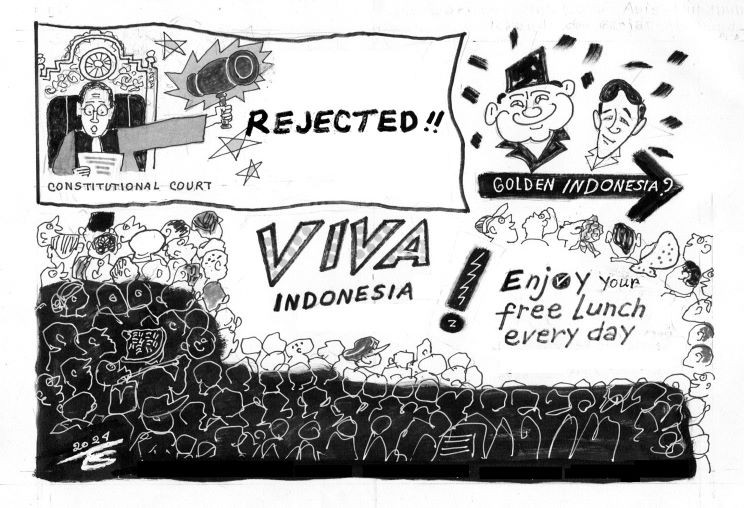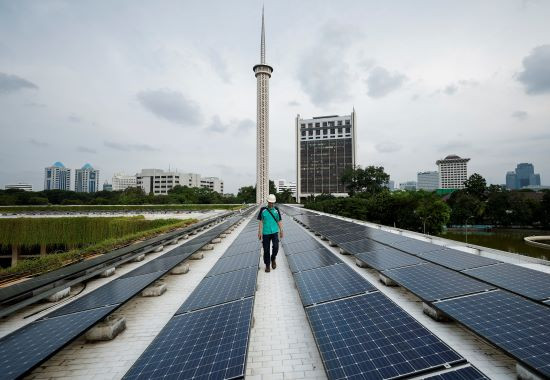New problem, old solution
Change Size
 Network cables are seen going into a server in an office building in Washington, DC, on May 13, 2017. (AFP Photo/Andrew Caballero-Reynolds)
Network cables are seen going into a server in an office building in Washington, DC, on May 13, 2017. (AFP Photo/Andrew Caballero-Reynolds)
A
s a former Indonesian Military (TNI) general, Defense Minister Prabowo Subianto should have known that today’s warfare is no longer fought on beaches, in trenches or in jungles.
Today, in some of the world’s hot spots, like on the border between Syria and Turkey or in Crimea, military battles still involve the use of soldiers and heavy artillery, but in most cases political leaders and generals have switched to more effective means for defeating their enemies, from covert operations and election interference to hacking into the electronic grids or banking infrastructure of enemy nations.
It is now a well-known fact that in 2007 Israel launched a cyberattack against Iran’s uranium enrichment facility in the Natanz nuclear site using a computer virus known as Stuxnet. Israel attempted a similar attack on Iran’s telecommunications network in 2017.
The 2016 United States presidential election shed light on the effective use of social media-based disinformation to sow chaos and confusion. This disinformation campaign came from a Russian government-sponsored propaganda operation, according to internet security firm Symantec.
In both instances of cyberwar, the respective governments decided to step up their game by improving their cyberdefense mechanisms. To guard against Stuxnet, Iran developed a firewall that it claimed was able to repel the 2017 attack on its telecommunications network. In the US, Congress approved US$250 million in funding for election security, most of which was spent on cybersecurity.
But old soldiers never die. It seems that Prabowo prefers to have his wars fought by men and women in uniform, and in the event of massive-scale warfare, he believes numbers and fire power matter more than anything else. “[If war broke out] maybe our facilities and equipment would be destroyed, but I am certain that Indonesia would not be occupied by another country because all the people would become components of the national defense,” Prabowo told lawmakers at the House of Representatives Commission I overseeing defense, foreign affairs, information and intelligence on Monday.
In making this proposal, Prabowo has actually recycled an old idea of his predecessor, Ryamizard Ryacudu, another retired military general. Early in his tenure, Ryamizard floated the idea of training civilians in state defense and he expected to have more than 100 million being trained over the next 10 years. However, after five years nothing came of the plan, and Prabowo has only picked up where Ryamizard left off. It turns out that the new minister’s idea is just old wine in a new bottle.
Even if Prabowo means business, the plan would involve enormous logistical costs that would add a heavy burden to the existing bureaucratic structure. (In fact, the defense minister already enlisted Education and Culture Minister Nadiem Makarim to join his plan on Monday.) What if the budget earmarked for schooling millions of students to shoot firearms could just be diverted to training a handful of hackers and computer experts?
Otherwise, we will spend so much on what could just be a 20th century solution for a 21st century problem.








